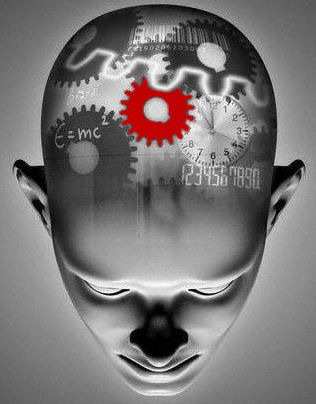Recently I was involved in a discussion where we were talking about behaviours at work, and the issue of personality arose. Some would argue that you can’t change your personality, and the way you behave (for instance, in the workplace) is down to your personality and also perhaps to do with the chemical make-up of your brain.
Obviously being in HR, I would protest this- arguing that we are all in control of our own behaviours and that this is something that we can change. For example, cognitive behavioural therapy is a form of psychotherapy (treatment for emotional and psychological problems where a person talks with a mental health professional) that helps a person to change unhelpful or unhealthy thinking habits, feelings and behaviours (Source: Better Health Channel).
The core philosophy of CBT is that thoughts, feelings and behaviours combine to influence a person’s quality of life.

It is said that your thoughts influence how you feel and those feelings then impact on how you behave or react. For example, a situation at work (stimulus) occurs where someone criticises something you have done. You could potentially be thinking:
I’m so angry!!!
She’s always picking on me!
She has no idea what she is talking about!
He was really harsh in the way he said that
Perhaps he’s right; maybe I could improve on XX…
I’m glad that I got that feedback
Depending on the way that you think, this can impact on how you feel about the whole situation and this will dictate your response.
Recently however some have argued to me that if your personality is to react in a certain way, then this is beyond your control and just a part of who you are.
So I went looking for some research on this and found a great article: Sherin, J. and Caiger, L. 2004, ‘Rational-Emotive Behaviour Therapy: A Behavioural Change Model for Executive Coaching’, Consulting Psychology Journal: Practice and Research, Vol. 56, No. 4, pp. 225-233.
Here is a key excerpt:
REBT resulted from Ellis’s objective to better understand which specific features of personality caused people to maintain dysfunctional behavioural patterns (Ellis, 1994). Drawing on both Stoic and Adlerian philosophy, he argued that personality was best defined by how people interpret and respond to their environment. He contended that an individual’s emotional and behavioural reactions are determined solely by his or her interpretations of events, not by the events themselves (Neenan & Dryden, 2000).
So the research suggests again that change in behaviour is possible and that personality is not a get-out-of-gaol-free pass for people who react to situations in a certain way. Now the task is to convince them that…
References:
Ellis, A. (1994). Reason and emotion in psychotherapy. New York: Birch Lane.
Neenan, M., & Dryden, W. (2000). Essential rational emotive behaviour therapy. London: Whurr.
